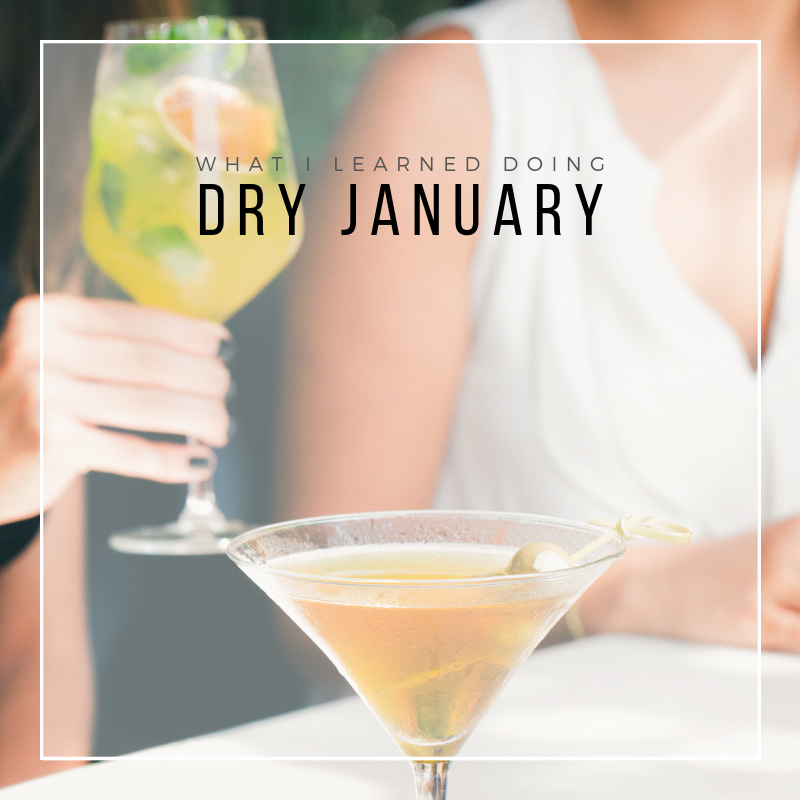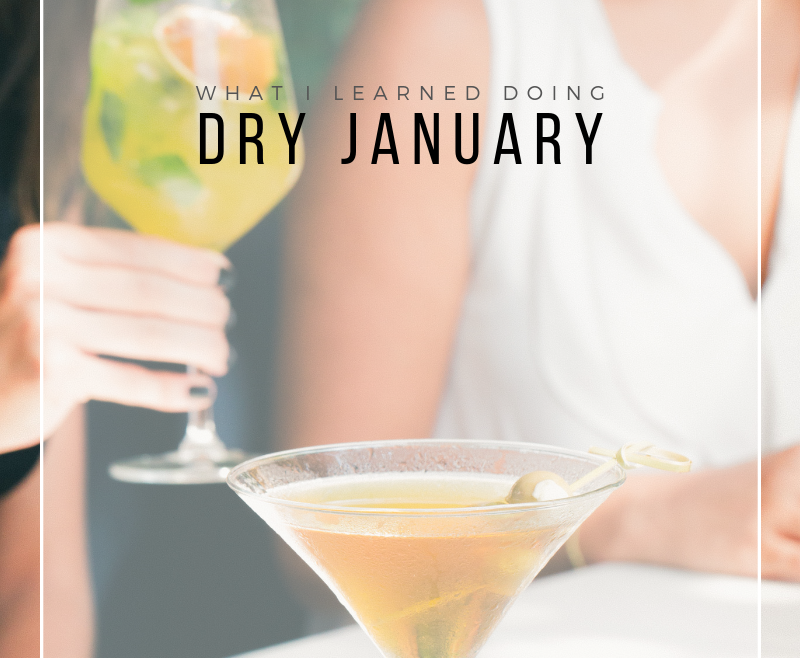 I didn’t intend to do Dry January.
I didn’t intend to do Dry January.
After overindulging during the holidays, as seems joyfully inevitable, I just thought it’d be worthwhile to reset those bad habits.
John and I have done three-week cleanses together before, where we prepare meals that limit sugar, dairy, white flour and more, focusing on fresh veggies and fruits. Since it was just my thing this time, I was a little less gung ho. I didn’t shop for a bunch of extra supplies and didn’t strictly commit to cutting things. Instead, I just wanted to be more mindful.
I typically prefer to eat heavy on vegetables and whole grains anyway, and with the season of Christmas cookies and eggnog behind us, that felt fairly simple.
Then I started noticing how many people were talking about Dry January, and I just kind of hitched my cart to their horse. I was going to drink moderately in January, but instead mostly abstained.
There was a moment of discomfort. Usually my own.
I like to socialize, and our socializing often involves having a wine or cocktails.
My goal wasn’t to abstain from people, just alcohol, so I had to separate the two.
I realized I often overthought how people would react if I ordered juice or seltzer, and initially, I would over explain and apologize.
Except for a little ribbing from some favorite bartenders, people mostly didn’t notice or care. In a few cases, I was met with support from others also on the wagon and from one bartender who handed me a Dry January menu with thoughtful, sophisticated alcohol-free concoctions listed.
It wasn’t awkward to anyone but me.
Alcohol doesn’t have to be synonymous with fun
A wise friend of mine observed, “I need to get over the idea that stopping drinking will make me less fun, it’s not true actually!”
Our culture has linked drinking with the fun-loving bon vivant, while the teetotaler is an uptight kill joy.
But increasingly, I have come to realize I don’t especially like the person I am after a few drinks. My lowered inhibitions can lead me to say and do things I regret the next day. Regret does not equal fun.
What if not drinking, or at least drinking less, is synonymous with fun because I won’t have those regrets?
Drinking gives us social cover to let loose
I was talking with another wise friend about drugs and alcohol, and he observed that they give us social cover to act the way we’d like to but feel we can’t because of our ego or insecurities.
Take for example American men, who might worry it’s un-macho to be too affectionate with friends … unless they’ve had a few beers, in which case it’s “I love you, man” time.
Dance wildly, laugh too loud, flirt overtly … The social understanding of lowered inhibitions, separate from the actual physical effects, gives us permission to let loose.
Alcohol is a social lubricant, but perhaps not all of it is physical.
More people are off the sauce than I realized
Once I wasn’t drinking, my antennae went up for how many other people were off the sauce. Especially middle-aged women.
Turns out lots of women my age have realized our bodies don’t metabolize alcohol the way they used to. For some friends, drinking leads to hot flashes, for example. Others didn’t need the extra calories as our metabolisms slow.
Numerous female friends who don’t identify as alcoholics, who probably wouldn’t say they’ll never drink again, aren’t currently drinking. And they feel better because of that decision.
That means even less reason to have social discomfort around ordering a soft drink, and even more reason to redefine fun as not relying on alcohol.
Mostly I felt better
I love the taste of a good glass of wine or a well-made cocktail, and I like the ritual around a pre-dinner drink. Sometimes I missed that.
But I also like the ritual of my morning cup of coffee, which is almost always cut with decaf. Our mix at home varies from half-caff to three-quarters decaf, just one quarter leaded. I’m well practiced in the art of maintaining the experience without as much of the drug.
In recent years, I have noticed alcohol’s depressant effects more strongly. I call the lingering effects the shameover. After a night of drinking, I wake up replaying my every real and imagined social faux pas.
Without drinking, I didn’t suffer shameovers, nor the standard-issue hangover, which comes at a lower and lower threshold as I age. I slept better, so I needed less coffee to be alert, which also helped my sleep. This combination put me in a better mood.
What now?
I didn’t set out to make a permanent life change, any more than I intended to do Dry January in the first place. I watched the calendar and looked forward to having a drink again, not to mention a big bowl of pasta.
Maybe ironically, maybe not a coincidence, we hosted friends for dinner just after the start of this month and I enjoyed a few drinks, some delicious rich soup, homemade cake … and promptly developed intestinal distress.
I’ve been on a bland food and tea diet all week.
So much for returning to normal.
It’s made me wonder if there’s a sign to observe. Maybe I wasn’t meant to go back to my old ways?


Leave a reply